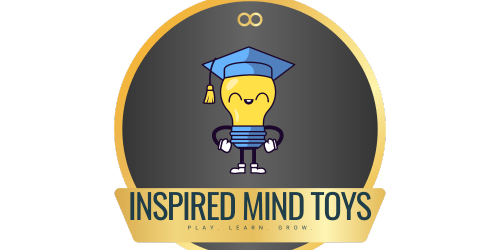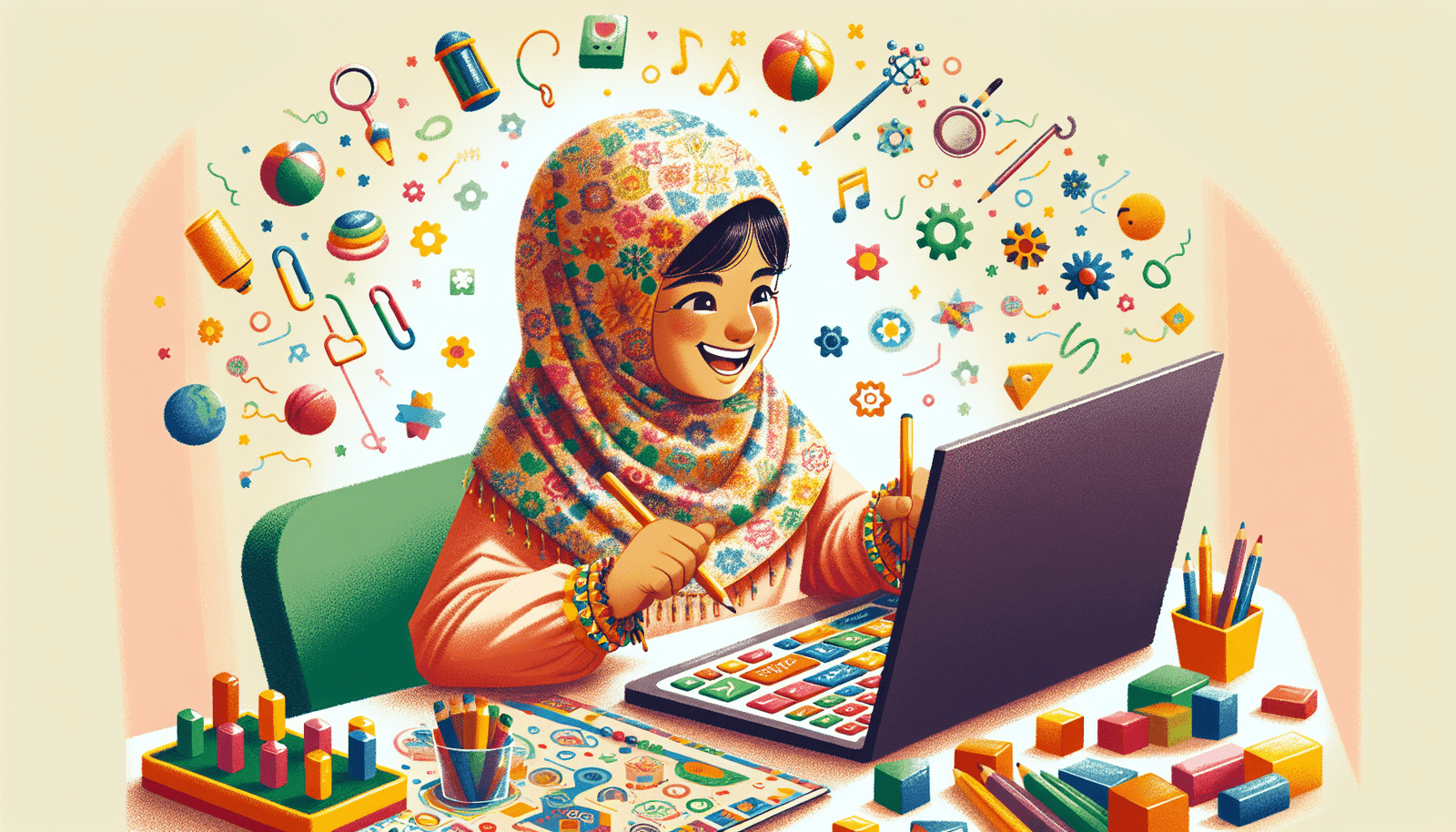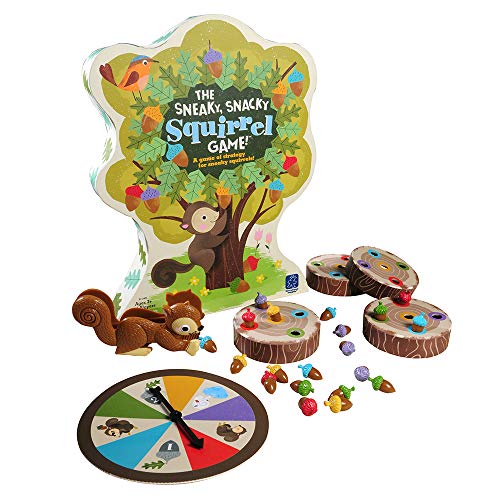If you’re a parent or an educator looking for fun educational games for preschoolers, you’ve come to the right place! We understand that finding engaging and educational activities for young children can be a challenge, so we’re here to help. In this article, we’ll provide you with a variety of options that will not only entertain your little ones but also enhance their learning experience. From interactive games that teach numbers and letters to creative activities that promote critical thinking, we’ve got it all covered. So, get ready to explore the wonderful world of fun educational games for preschoolers and discover exciting ways to support your child’s development.
Educational Games For Preschoolers
Understanding Educational Games
Defining educational games
Educational games are specifically designed to combine fun and learning to create an engaging and interactive educational experience for preschoolers. These games are structured in such a way that they promote cognitive, social, motor, and creative development in young children. Unlike traditional games, educational games have a deliberate focus on incorporating educational content and activities to enhance various skills while keeping the child entertained.
Benefits of educational games to preschoolers
Educational games offer numerous benefits to preschoolers, making them a valuable tool for early childhood education. These games not only make learning enjoyable but also help in the development of essential skills. Cognitive development games improve critical thinking, problem-solving, and memory skills. Social skills enhancement games enable children to learn how to interact and cooperate with others. Motor skills building games aid in improving hand-eye coordination and fine motor skills. Creative and artistic games foster imagination, self-expression, and creativity in young children.
Balancing fun and learning in games
One of the key aspects of educational games is striking a balance between fun and learning. While the primary objective is to educate, it is crucial to ensure that the games are enjoyable and engaging for children. By making the learning process exciting and interactive, preschoolers are more likely to be motivated and actively participate in the educational activities. Fun elements such as colorful graphics, engaging storylines, rewards, and challenges can be integrated into educational games to keep children entertained while learning.
Types of Educational Games
Cognitive development games
Cognitive development games are designed to enhance preschoolers’ thinking abilities, memory, problem-solving skills, and overall cognitive development. These games often involve puzzles, matching activities, sorting, categorizing, and sequencing tasks. By engaging in these games, children can sharpen their cognitive skills and improve their ability to analyze and think critically.
Social skills enhancement games
Social skills enhancement games focus on promoting social interaction, cooperation, empathy, and communication among preschoolers. These games often involve role-playing, teamwork, and discussion-based activities that encourage children to understand and respect the perspectives and emotions of others. By engaging in these games, children develop the necessary social skills to build healthy relationships and effectively communicate their thoughts and feelings.
Motor skills building games
Motor skills building games are designed to improve a preschooler’s physical coordination and fine motor skills. These games often include activities that involve hand-eye coordination, balance, and spatial awareness. Through activities such as drawing, tracing, stacking, and throwing, children can develop their motor skills, which are essential for tasks such as writing, using scissors, and tying shoelaces.
Creative and artistic games
Creative and artistic games encourage preschoolers to explore their imagination, self-expression, and creativity. These games often involve activities such as drawing, painting, storytelling, and music-making. By engaging in these games, children can enhance their artistic abilities, develop a sense of aesthetics, and express themselves in a creative and individualistic manner.
Best Board Games for Preschoolers
Bunny Hop Memory Game
Bunny Hop Memory Game is a fun and educational game that helps preschoolers enhance their memory and concentration skills. The game involves turning over cards and finding matching pairs of bunnies to complete the sequence. This game not only promotes cognitive development but also teaches children the value of patience and focus.
The Sneaky, Snacky Squirrel Game
The Sneaky, Snacky Squirrel Game is an engaging board game that focuses on developing fine motor skills and strategic thinking in preschoolers. The game requires children to use squirrel-shaped tweezers to collect and match colored acorns while avoiding certain obstacles. This game not only improves hand-eye coordination but also enhances color recognition and counting skills.
Zingo Number Bingo
Zingo Number Bingo is an interactive board game that helps preschoolers develop early math skills, number recognition, and counting. The game involves players matching numbered tiles to their corresponding pictures on their Zingo cards. This game not only reinforces basic number sense but also teaches children the concept of visual matching and pattern recognition.
Candy Land
Candy Land is a classic board game that offers a delightful and educational experience for preschoolers. The game involves navigating through a colorful and imaginative candy-themed world by drawing cards and moving along the corresponding colored path. Candy Land not only helps children with color recognition and counting but also promotes turn-taking, patience, and following rules.
Digital Games for Preschoolers
Peppa Pig: Holiday
Peppa Pig: Holiday is a digital game that allows preschoolers to join Peppa Pig and her family on various vacation adventures. The game offers interactive activities such as packing for the trip, exploring different holiday destinations, and engaging in fun mini-games. Peppa Pig: Holiday promotes creativity, problem-solving, and imaginative play in young children.
Metamorphabet
Metamorphabet is an interactive alphabet learning game that introduces preschoolers to the letters of the alphabet through immersive and engaging animations. Each letter transforms into various objects and creatures related to the letter, creating a multisensory learning experience. Metamorphabet not only aids in letter recognition but also sparks curiosity and fosters a love for learning.
Toca Kitchen 2
Toca Kitchen 2 is a digital game that allows preschoolers to explore their culinary skills and creativity in a virtual kitchen. Children can experiment with different ingredients, cooking methods, and presentation styles to prepare meals for various characters within the game. Toca Kitchen 2 promotes imaginative play, problem-solving, and fine motor skills as children engage in the virtual cooking process.
Sesame Street: Elmo’s World And You
Sesame Street: Elmo’s World And You is an interactive game that enables preschoolers to join Elmo on exciting adventures while learning about various topics such as animals, gardening, and emotions. The game invites children to interact with the characters and participate in activities that promote critical thinking, vocabulary development, and social-emotional skills.
DIY Educational Games
Creating a DIY educational game
Creating a DIY educational game can be a rewarding and cost-effective way to engage preschoolers in learning activities. To create a DIY educational game, start by identifying the learning objective or skill you want to target. Then, gather materials such as cardboards, markers, colored papers, and craft supplies. Design the game to be interactive and engaging, incorporating hands-on activities, puzzles, and challenges. Finally, test the game with your preschooler, making any necessary adjustments based on their feedback and learning experience.
Step-by-step guide in making a simple preschool game
- Choose a learning objective: Determine the specific skill or concept you want to focus on, such as colors, shapes, or numbers.
- Gather materials: Collect materials such as colored papers, markers, scissors, and glue.
- Design the game: Create visually appealing game boards, cards, or puzzles that align with the chosen objective. Incorporate interactive elements and age-appropriate challenges.
- Add instructions and rules: Clearly explain how to play the game and any specific rules or objectives to achieve.
- Test and adjust: Playtest the game with your preschooler, observing their engagement and understanding. Make any necessary adjustments to improve the game’s effectiveness and enjoyment.
Incorporating educational value to DIY games
When creating DIY educational games, it’s important to incorporate educational value in a fun and engaging manner. Consider ways to align the game with age-appropriate learning objectives, such as promoting cognitive skills, motor skills, or social-emotional development. Integrate interactive and hands-on activities that require problem-solving, critical thinking, and creativity. Be intentional in designing the game to target specific learning goals while allowing room for exploration and independent thinking.
Interactive Learning Toys
Benefits of interactive learning toys
Interactive learning toys offer numerous benefits for preschoolers, promoting holistic development and engaging them in educational activities. These toys provide hands-on learning experiences that enhance cognitive, social, and motor skills. They encourage independent exploration, problem-solving, and critical thinking. Interactive learning toys also foster creativity, imagination, and self-expression. By incorporating educational content and interactive features, these toys make learning enjoyable and meaningful for preschoolers.
Examples of interactive learning toys
LeapFrog LeapStart Interactive Learning System: This interactive learning system engages preschoolers in a range of educational activities that enhance reading, math, and problem-solving skills. It features an interactive stylus that activates audio and animations, providing an engaging and interactive learning experience.
VTech Touch and Learn Activity Desk: The Touch and Learn Activity Desk offers a variety of interactive activities that promote letter and number recognition, vocabulary development, and imaginative play. Preschoolers can explore different activity cards and engage with the touch-sensitive desk surface for an immersive learning experience.
Fisher-Price Think & Learn Code-a-Pillar: The Code-a-Pillar is an interactive learning toy that introduces preschoolers to basic coding and sequencing concepts. By connecting different segments of the Code-a-Pillar, children can experiment with cause and effect, problem-solving, and critical thinking skills.
Melissa & Doug Wooden Blocks: These classic wooden blocks provide an interactive and open-ended play experience for preschoolers. By stacking, sorting, and building with the blocks, children can develop spatial awareness, problem-solving, and creativity in a hands-on and tactile manner.
Choosing the right interactive learning toy
When selecting interactive learning toys for preschoolers, there are several factors to consider. First, ensure that the toy is age-appropriate and aligns with the child’s developmental stage and interests. Look for toys that offer a variety of educational activities and can grow with the child’s evolving skills. Consider the durability and safety features of the toy to ensure longevity and child-friendly design. Additionally, read reviews and recommendations from other parents and educators to get insights into the toy’s educational value and engagement level.
Quiz Type Games
Adapting quizzes for educational purposes
Quizzes can be adapted for educational purposes by structuring them to align with specific learning objectives and content. Instead of focusing solely on trivia or general knowledge, educational quizzes can target key concepts, vocabulary, or problem-solving skills related to a particular subject. The questions should be designed to challenge and engage preschoolers, stimulating their thinking and reinforcing their understanding of the educational content.
Quiz game examples suitable for preschoolers
Animal Sounds Quiz: Create a quiz that plays different animal sounds and prompts preschoolers to identify the corresponding animal. This quiz can help children develop their auditory recognition skills and expand their knowledge of different animal species.
Shape and Color Identification Quiz: Present images of different shapes and colors and ask preschoolers to identify and match them correctly. This quiz reinforces shape and color recognition skills while encouraging visual discrimination and critical thinking.
Counting and Number Quiz: Display sets of objects or pictures and ask preschoolers to count and select the correct corresponding number. This quiz helps develop number sense, counting skills, and basic numeracy.
Rhyming Words Quiz: Provide pairs of words and ask preschoolers to identify which words rhyme. This quiz promotes phonological awareness, language development, and early literacy skills.
Educational Puzzles
Boosting cognitive skills through puzzles
Educational puzzles are a fantastic tool for boosting cognitive skills in preschoolers. Puzzles require critical thinking, problem-solving, and spatial awareness, all of which contribute to cognitive development. By engaging in puzzles, children can enhance their ability to recognize patterns, categorize objects, develop logical reasoning, and improve their memory skills. These activities stimulate the brain, promote concentration and focus, and foster a love for learning and overcoming challenges.
Selecting the right puzzles
When selecting puzzles for preschoolers, it’s important to consider their age, developmental stage, and interests. Start with puzzles that have larger, simpler pieces and gradually progress to more complex ones as the child’s skills develop. Look for puzzles that align with educational objectives such as colors, shapes, numbers, letters, or animals. Consider the materials of the puzzles, opting for durable and child-friendly options. Additionally, choose puzzles that offer a range of difficulty levels to provide an appropriate challenge for the child.
Examples of educational puzzles for preschoolers
Alphabet Puzzle: An alphabet puzzle features individual pieces representing each letter of the alphabet. This puzzle helps preschoolers learn letter recognition, letter-sound correspondence, and letter formation.
Shape Sorting Puzzle: A shape sorting puzzle consists of various shapes and corresponding cutouts on a board. Preschoolers can match the shapes to their respective cutouts, promoting shape recognition, spatial awareness, and fine motor skills.
Number Sequence Puzzle: A number sequence puzzle involves arranging numbered pieces in the correct numerical order. This puzzle helps preschoolers develop their counting skills, number recognition, and logical thinking.
Animal Puzzle: An animal puzzle depicts different animals and their corresponding habitats. As preschoolers piece together the puzzle, they learn about animals, develop observational skills, and strengthen their fine motor skills.
Role-Playing Games
Fostering imagination and creativity through role-play
Role-playing games offer preschoolers a platform to unleash their imagination and creativity. These games involve pretending to be different roles, such as a doctor, chef, firefighter, or teacher. Through role-play, children can explore different scenarios, express their emotions, and engage in imaginative storytelling. Role-playing games foster empathy, social interaction, communication skills, problem-solving, and self-expression in young children.
Examples of role-playing games suitable for preschoolers
Doctor’s Clinic: Set up a pretend doctor’s clinic with toy medical instruments, a white coat, and a stethoscope. Children can take on the role of a doctor, nurse, or patient, interacting, diagnosing, and treating various ailments in their imaginative clinic.
Restaurant or Café: Create a pretend restaurant or café with play food, menus, and utensils. Preschoolers can role-play as chefs, waiters, or customers, taking orders, preparing meals, and practicing social interactions.
Construction Site: Set up a construction site using toy tools, hard hats, and building blocks. Children can take on the roles of construction workers, architects, or foremen, working together to build structures and solve construction challenges.
Grocery Store: Create a mini grocery store with play food items, shopping baskets, and a cash register. Preschoolers can role-play as shoppers, cashiers, or storekeepers, practicing basic math skills, social interactions, and decision-making.
Where To Buy Educational Games
Exploring online options for purchasing
There are various online platforms and stores where you can conveniently purchase educational games for preschoolers. Online marketplaces such as Amazon, Walmart, and Target offer a wide selection of educational games, providing detailed product descriptions, customer reviews, and competitive pricing. Many educational toy manufacturers also have their own online stores, allowing you to purchase directly from the source. Additionally, there are dedicated educational toy retailers, both locally and internationally, that provide a comprehensive range of educational games for preschoolers.
Physical stores vs. online stores
When deciding between physical stores and online stores, it’s important to consider your preferences and convenience. Physical stores allow for a hands-on experience, where you can see and touch the games before making a purchase. They also offer the opportunity to interact with knowledgeable staff who can provide guidance and recommendations. On the other hand, online stores provide the convenience of browsing and purchasing from the comfort of your own home. Online stores often have a larger selection, user reviews, and the ability to compare prices and features easily.
Buying pre-owned educational games
Buying pre-owned educational games can be a cost-effective option, especially when considering the rapid growth and changing interests of preschoolers. Online platforms such as eBay and Facebook Marketplace offer pre-owned educational games at discounted prices. However, when purchasing pre-owned games, it’s important to ensure that the game is in good condition, complete with all necessary parts, and free from any safety hazards. It’s also advisable to sanitize and clean the game thoroughly before letting your child play with it.
Interested in seeing the products we use?
Check out our carefully crafted list of items









